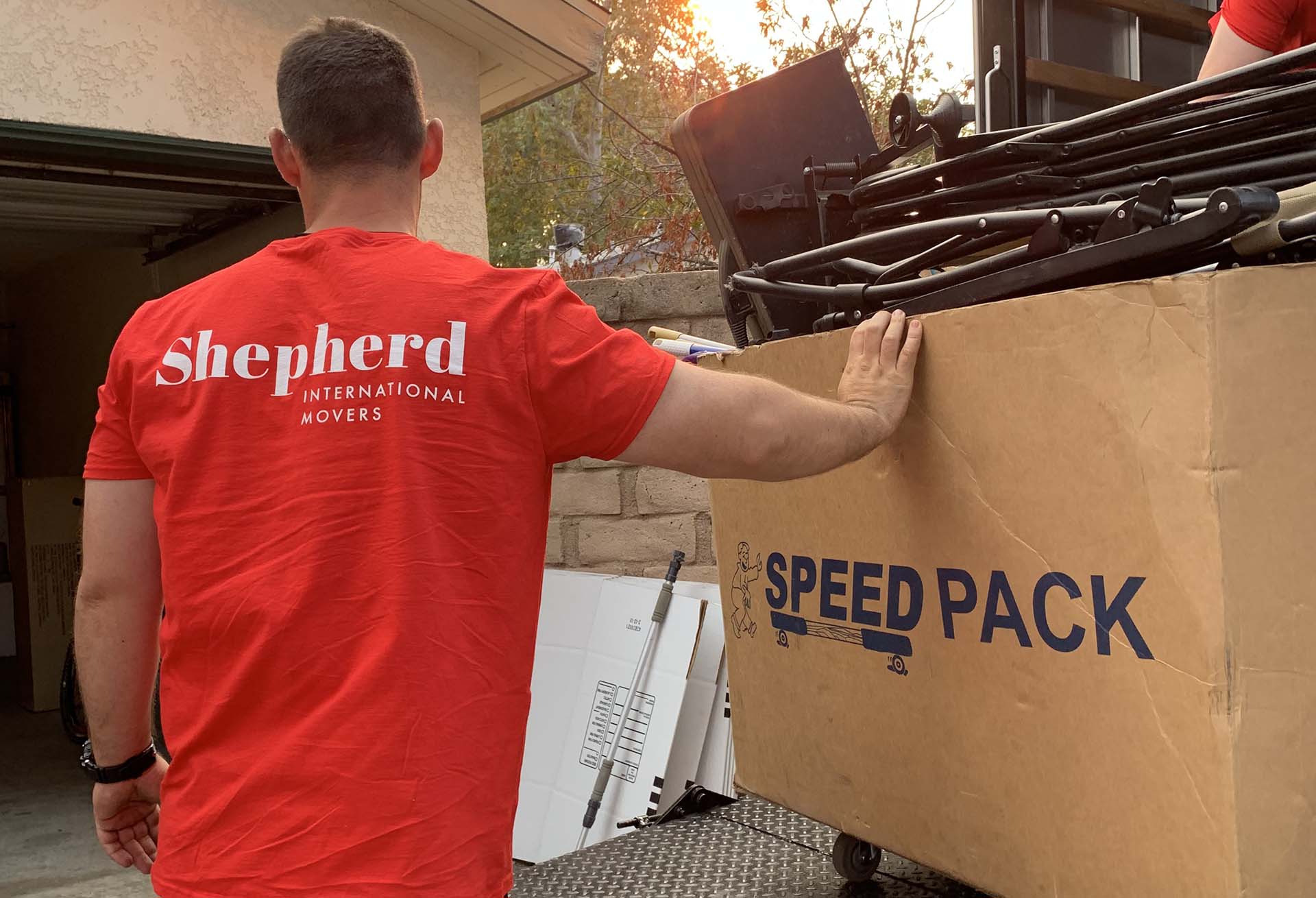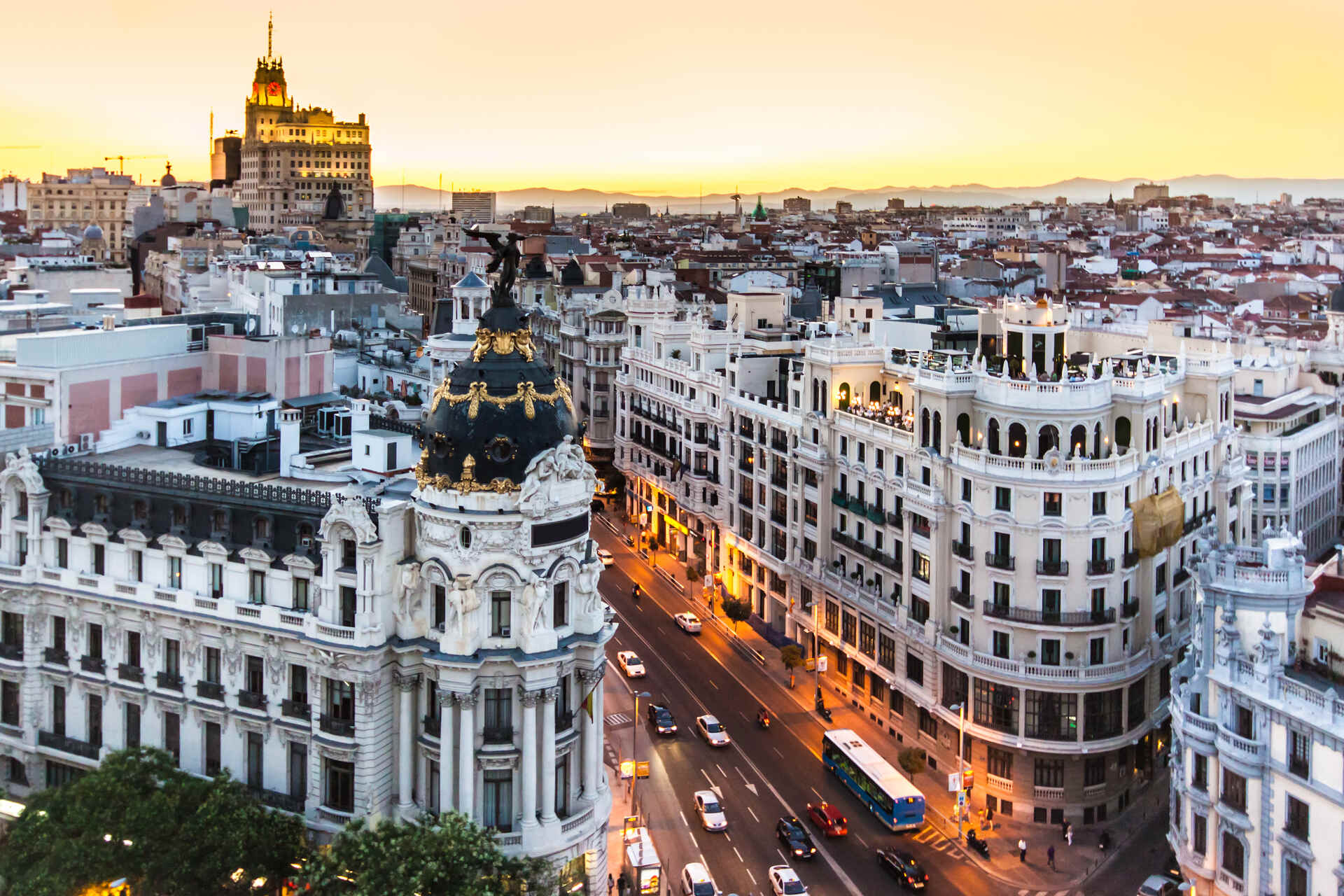

Are you ready to experience the beauty and culture of Ireland by making a move to this richly historic country? Whether you’re coming for work, study, or simply as an adventurer in a new land, moving to Ireland from the US can be both exciting and overwhelming. To make your transition smoother and easier than ever before, take some time to prepare with our guide.
Moving to Ireland Starts With Proper Planning
So, how to move to Ireland? Moving abroad can be both an exciting and overwhelming experience. Not only do you have to think about the practicalities of getting from one place to another, but you also have to consider the important documents needed to travel abroad – visas, permits, taxes, and more. Although the process may seem overwhelming at first and cause you plenty of relocation stress, proper planning can make your experience of moving overseas to Ireland as smooth as possible. Let’s take a look at the first steps you should take before relocating.
Apply for Necessary Visas and Permits
Before moving internationally, it is important to research what type of visa or permit you will need in order to reside legally in another country. Depending on your citizenship and the length of time you intend to stay in Ireland, you may need a long-term visa or residence permit. It is best to consult with a lawyer or other immigration specialist for advice specific to your situation.
Budget for the Move and Living Expenses
Relocating to become a part of an expat community can be expensive, so it is important that you plan ahead by budgeting for all aspects of your move as well as any living expenses once you arrive in Ireland. As an American moving to Ireland, you have to make sure to factor in all costs associated with relocating abroad, such as travel expenses, the cost of connecting utilities at your new home, as well as any necessary deposits associated with rental agreements or purchasing a home. Don’t forget the cost of relocation services – they are an unavoidable part of moving from the US to Ireland!

Find a Place to Live in Ireland
With so many different cities and towns, it can be difficult to decide where to live – what is the right place for you and your family? To help you out, we’ll discuss three of the most interesting cities in Ireland – Dublin, Galway, and Killarney – so you can make an informed decision about where to settle down and enjoy living abroad.
Dublin - The Capital With Plenty of Opportunities
As the capital and largest city of Ireland, Dublin offers its residents plenty of culture and entertainment options. The city is home to numerous museums, galleries, restaurants, theaters, music venues, parks, shops, and more.
It also has excellent public transportation links, with trains connecting it to other major Irish cities such as Belfast and Cork. In addition, Dublin’s universities are recognized for their high quality of education, making it a great place for students. The job scene is also full of possibilities, which is a good thing for those relocating without a job.
Galway - A Place Where You Will Never Get Bored
If you’re looking for something a bit smaller than Dublin but still want plenty of amenities at your fingertips, then Galway may be the perfect choice for you. Located on the west coast of Ireland near Connemara National Park and Galway Bay, this picturesque city is known for its vibrant nightlife scene as well as its strong sense of community spirit. Galway is home to a number of festivals throughout the year, including the world-famous Galway Arts Festival, so there’s always something going on that’s sure to keep everyone entertained.
Killarney - A Charming Atmosphere You Will Love
Killarney is another popular destination in Ireland due to its proximity to stunning landscapes like Killarney National Park and the Lakes Of Killarney. The town itself has a charming atmosphere, with cobblestone streets lined with traditional Irish pubs. If you’re looking for an adventure, there are plenty of outdoor activities, such as kayaking or horseback riding, available nearby. The town also has some excellent shopping options plus plenty of accommodation options, from bed & breakfasts to luxury hotels, making it an ideal base from which to explore Kerry County.
Relocation Will Be Easy When You Hire an International Moving Company to Assist You
What to know about moving to Ireland? The first thing is that an international moving company will always make the relocation process easier by providing services such as packing assistance, shipping, and storage. This means that you don’t have to worry about dealing with all of these tasks yourself – we’re sure you will be happier not packing fragile items on your own, for example!
An international moving company will also have experience working with the country’s laws and regulations concerning imports and exports, so they will be able to provide you with advice on how best to get your belongings to their destination safely and legally. Hiring a relocation company is sure to remove at least a little bit of anxiety about relocating.
Using More Than One Service When Moving Abroad
When relocating abroad, it’s important to remember that you may need more than just one service from a relocation company. For example, if you are bringing along a car, you may want to consider using a car shipping service as well as a relocation service for your other belongings. Car shipping service will ensure that your vehicle is moved safely without any damage or delay.

Prepare for the Move Before the Movers Arrive
Relocating across the world can be a stressful time, especially when you’re moving out for the first time. You need to pack up all your belongings, arrange for movers, and figure out how you’re going to transport everything. It can be overwhelming, and it’s easy to feel like you don’t know where to start in order to achieve an efficient relocation. That’s why it’s important to be organized and follow a detailed relocation to-do list where all the tasks are neatly written down – this will make sure that you have everything in order before the movers arrive.
Sort and Organize Belongings – Decluttering Is Crucial for a Successful Move
Before you start wrapping up items from your home, take some time to go through each room and sort through your belongings. Deciding what to pack for a move abroad is an important step that should not be overlooked because it can save you time and money in the long run. Make sure that anything that doesn’t need to be moved gets thrown away – or you can donate items you don’t need so that you don’t end up paying for extra storage fees.
Additionally, try making lists of what needs to stay with you (like important documents) versus what needs to be packed away (for example, you’ll obviously pack furniture). This will help keep everything organized during the process, and it’s definitely one of the better relocation hacks.
Start Packing on Time – Use All the Popular Packing Tips and Hacks
Once your home is sorted out, it’s time to start packing! Start early so that you are not rushed when it comes time for the movers to arrive. Unless you’re having a last-minute relocation, set aside about a month to wrap up everything. Start by packing items that are not used as often or items that are easily replaced (like books). Try using popular packing hacks to make the process easier – here are some excellent tips and hacks that will help you pack efficiently:
- Use high-quality packaging supplies such as bubble wrap, sturdy boxes, and packing tape.
- Label all boxes clearly with the contents and room they belong in.
- Pack heavy items in smaller boxes and lighter items in larger boxes.
- Use clothing and linens to cushion fragile items instead of purchasing additional packing materials.
- Pack items that you will need immediately in a separate box or bag and keep it with you during the move.
- Take photos of electronic devices and their cords before unplugging them to make it easier to set them up again at your new home.
- Use vacuum-sealed bags to compress bulky items such as bedding or winter clothes.
- Fill any empty spaces in boxes with packing paper or towels to prevent items from shifting during transit.
Start Looking for Work on Time
Before you start looking for a job in Ireland, it is important that you do some research into the current employment climate. This will give you an idea of what sectors are doing well, who is currently hiring, and which types of jobs are in demand. Be sure to begin the job quest at least a few months before the relocation.
Research Work Etiquette in Ireland
Cultural differences can have an impact on how people communicate and interact with each other in the workplace. Researching cultural norms and etiquette beforehand will help ensure that you don’t inadvertently offend anyone or make yourself stand out for the wrong reasons during an interview or on the job.
For example, Irish people tend to be very direct communicators, so avoiding flowery language is recommended if you want to make a good impression at work! Understanding the culture before you find yourself in a different country will help ease the culture shock, and it will make adjusting to the new country less stressful.

Learn About the Culture
By taking time to learn about the culture in Ireland before moving there, you can ensure that your transition into life abroad goes as smoothly as possible. From traditional music to unique foods and dialects – there are plenty of fascinating aspects of Irish culture that make it worth exploring before taking the plunge into life abroad.
Irish cuisine has been influenced by both British and American cultures, so you will find a variety of dishes available throughout the country. Traditional Irish food includes dishes like colcannon (a mix of potatoes and cabbage or kale), boxty (potato pancakes), and coddle (a stew made from pork sausage, bacon, potatoes, onions, and herbs). Of course, no meal is complete without a pint of Guinness! The famous stout beer is deeply rooted in Irish culture – it even has its own holiday.
Traditional music plays an important role in Irish culture. Instruments like the tin whistle, accordion, fiddle, banjo, concertina, flute, bagpipes, and bodhrán drum are popular throughout the country. As for sports, soccer (known as football in Ireland) and Gaelic football are the most popular choices – however, rugby union and horse racing are also popular sports among locals. If you want to learn a bit more about Irish culture and customs, check out the video below.
Moving to Ireland Will Bring You an Abundance of Opportunities – But You Need Great Movers to Get There
Moving to Ireland can be a life-changing experience, full of opportunities, giving you a great chance to grow. Whether you are planning on staying for a few months or permanently relocating, it is important to make sure the transition runs as smoothly as possible. Hiring a trustworthy and experienced international moving company can be a wise decision for simplifying your move.
There’s no need to risk your fragile items being damaged or lost in transit when you can have a good team by your side. At Shepherd International Movers, we understand what it takes to make the relocation process straightforward and stress-free. Our experienced movers will get your belongings from one location to another quickly and efficiently, so don’t hesitate to contact us, and we can start planning your relocation right away.
FAQ
What Type of Visa Do I Need to Move to Ireland?
If you plan to move to Ireland, you will need to obtain the appropriate visa depending on your purpose of travel and length of stay. For example, if you are an EU citizen, you do not need a visa to enter or reside in Ireland. However, if you are a non-EU citizen, you may need a visa to enter and stay in Ireland.
The type of visa you need will depend on factors such as your intended length of stay, whether you plan to work, study, and your personal circumstances. Some common visa types include student visas, work visas, and family visas. It is important to research and understand the specific requirements for the visa you need and to ensure that you have all the necessary documentation and information to apply for the visa successfully.
How Do I Find a Place to Live in Ireland?
If you are planning to move to Ireland and looking for a place to live, there are several ways to go about it. One option is to work with a real estate agent who can help you find properties that match your budget and preferences.
You can also browse online listings on websites such as Daft.ie, Rent.ie, and MyHome.ie, which offer a wide range of properties available for rent or sale. Another option is to join online communities such as Facebook groups, where you can connect with locals and other expats who can offer advice and information about housing options in specific areas.
What Is the Cost of Living in Ireland?
The cost of living in Ireland can vary depending on the location and lifestyle. Generally, living in urban areas such as Dublin, Cork, or Galway will be more expensive than living in rural areas. Housing is often the largest expense, and the cost of renting or buying a home can be high, particularly in Dublin. However, other costs, such as groceries, transportation, and healthcare, are relatively affordable in comparison to other Western European countries.
Can I Work in Ireland as a Foreigner?
Yes, it is possible to work in Ireland as a foreigner. However, it will depend on your individual circumstances and the type of work you wish to undertake. If you are a citizen of the European Union (EU) or European Economic Area (EEA), you have the right to work in Ireland without any restrictions. If you are a non-EU/EEA citizen, you will need to obtain a work permit to work in Ireland legally. Work permits are usually issued by the Department of Business, Enterprise and Innovation (DBEI) and are granted based on factors such as qualifications, skills, and the demand for your profession in Ireland.
What Healthcare Options Are Available to Me as an Expat in Ireland?
As an expat in Ireland, you are entitled to access the country’s public healthcare system, which is provided by the Health Service Executive (HSE). The public healthcare system in Ireland provides a range of services, such as GP consultations, hospital care, and emergency services.
If you are employed in Ireland, you may be eligible for subsidized healthcare through your employer, which can provide additional benefits such as private health insurance or access to private hospitals. Alternatively, you can purchase private health insurance to supplement the public healthcare system or for faster access to non-emergency services.








